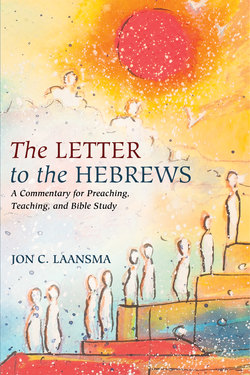Читать книгу The Letter to the Hebrews - Jon C. Laansma - Страница 15
На сайте Литреса книга снята с продажи.
2:5–9
Оглавление“All authority in heaven and on earth has been given to me.”
Context
Having anticipated Ps 8 ever since 1:4, and having praised the Son relative to the angels in 1:5–14, when the preacher now says, made lower than the angels, . . . crowned with glory and honor, our imaginations are primed—both for the meaning of his condescension and his exaltation. We have also been prepared to see that 1:1—2:18 concerns the word of salvation spoken by God (1:1–4): Firstly, the one in and as whom God speaks (1:5–14), and now what he has said in and as the Son (2:5–18). When the argument advances a further step it will concentrate on the response of faith (3:1—4:11) before reprising the theme of God’s word (4:12–13).
We have been telling the background story of the promise in the preceding units and “we do not have time to” repeat or “discuss these things in detail now.” The preacher is translating their lives into the story of that promise, having determined that the problem of flagging faith will be most effectively met by getting them to see their time for what it is “in these last days,” a time during which we do not yet see everything in subjection to him but we do see Jesus crowned with glory and honor as a sympathetic high priest.
Considering 2:5–18 as a whole we can summarize it in part like so: Since the promise of salvation was delivered to the seed of Abraham it was fitting and necessary that the Son would become like them in every way so as to make their entrance possible and help them to the goal. Putting it like this tends to the conclusion that although the once-for-all sacrifice is an element, the leading focus for the moment is on the sympathetic help for the way that the travelers may hope to gain from their Elder Brother. Both the once-for-all-ness and the on-going help are essential, but as the preacher tends to do in the framing sections of 1:1—4:16 and 10:19—12:29 he places emphasis on the ongoing journey, the provision and outlook by which they can cope with its hardships, and the certainty of the inheritance won for them.
Background
Psalm 8 is not known to have been a messianic text among the Jews but it was an important one for the early Christians, particularly in relation to Ps 110:1. Just as he will do with Ps 110, the preacher will now harvest a bit more from Ps 8 than was usually done. Looking at the psalm itself, from the perspective of the knowledge of God’s name humankind’s place in the world is contemplated. Viewing humanity alone against the backdrop of the cosmos it would seem too small for God’s attention. Yet the God of Israel has assigned us an exalted place, just a little lower than the angels (or, as otherwise interpreted, than God) and crowned us with glory and honor. He has made us rulers over his works and put everything under our feet (Ps 8:3–6). The psalm’s lines involve parallelism: Being made a little lower than the angels54 and being crowned with glory are saying the same thing, both lines underscoring the exalted place of humans in the world as God has revealed it.
